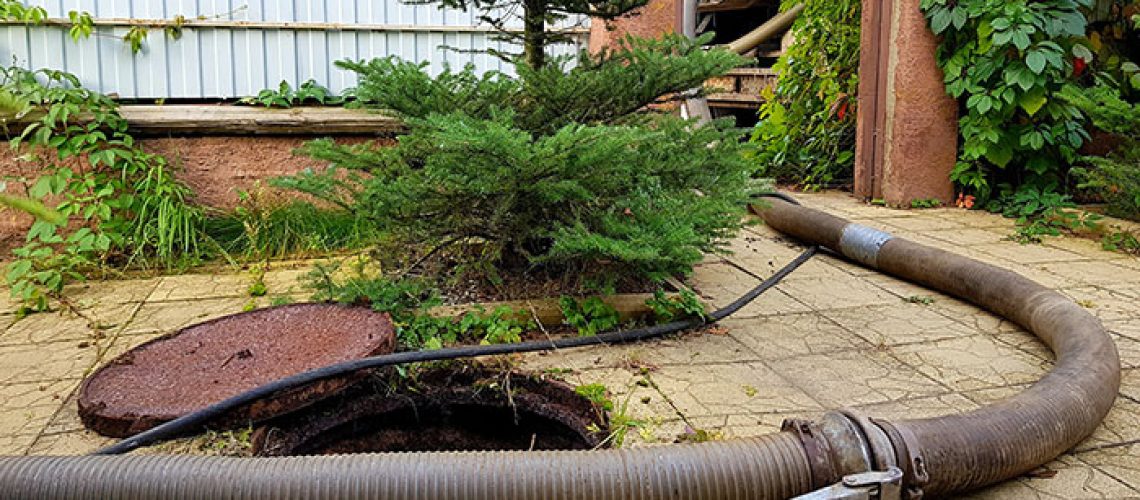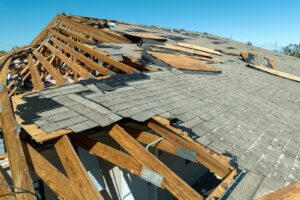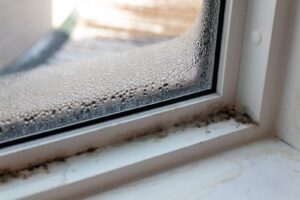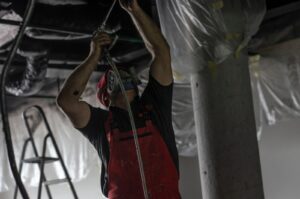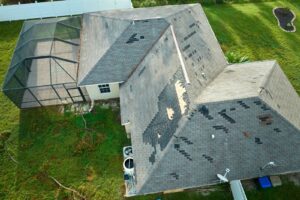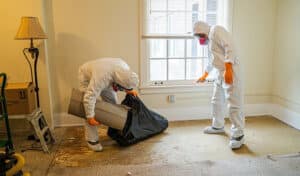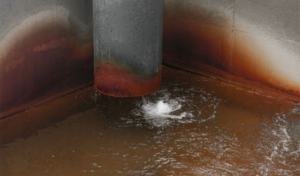Sewer damage can have severe consequences for you and your family, both in terms of health risks and property damage.
The impact goes beyond a foul odor or a messy sewage backup cleanup. Sewer backups can introduce harmful pathogens and contaminants into your living spaces, posing severe health hazards to you and your loved ones.
Furthermore, the financial burden of repairing and restoring your property after sewer damage can be overwhelming. That’s why it’s crucial to prioritize safeguarding your family against these potential risks and taking proactive steps to prevent sewer damage from occurring in the first place.
Because of how awful a situation with sewer damage can be, we’re here to discuss the importance of keeping your loved ones safe from the often overlooked yet potentially hazardous issue of sewer damage.
While it may not be a glamorous subject, understanding and taking preventative measures against sewer damage can make a world of difference when protecting your family and maintaining a healthy living environment.
In this blog, we will explore various aspects related to sewer damage, from understanding the causes and consequences to implementing preventive measures and ensuring family safety. By providing valuable information, expert tips, and practical advice, we aim to empower you to make informed decisions and take proactive measures to keep your family safe and secure.
Let’s get started.
What is Sewer Damage?
Before we delve into the importance of protecting your family from sewer damage, let’s first define what sewer damage entails.
Sewer damage refers to any form of impairment, blockage, or disruption to the sewage system within your property or the public sewer infrastructure. It can occur for various reasons, such as clogs, tree root intrusion, or deterioration of aging pipes. When sewer damage occurs, it can lead to sewage backups, leaks, or overflows, causing significant problems for homeowners and their communities.
The causes of sewer damage can vary, but one common culprit is clogs. Over time, debris, grease, hair, and other materials can accumulate within the pipes, obstructing the smooth flow of wastewater. If left unaddressed, these clogs can worsen and eventually lead to sewage backups in your home.
Another cause is the intrusion of tree roots into the sewer lines. As trees grow, their roots can seek out sources of moisture, and unfortunately, they sometimes find their way into underground sewer pipes, causing blockages and damage.
The consequences of sewer damage can be far-reaching and pose significant risks to your health and property. One of the immediate concerns is the release of foul odors and unsanitary wastewater into your living spaces. Exposure to sewage can introduce harmful bacteria, viruses, and parasites that can cause serious illnesses and infections.
Sewage in your home can also damage walls, floors, furniture, and personal belongings, leading to costly repairs and replacements. It’s essential to be aware of the potential dangers and take proactive measures to prevent and mitigate sewer damage to ensure the safety and well-being of your family.
Health Risks Associated with Sewage
When it comes to sewer damage, one of the most critical aspects to consider is the potential health risks associated with exposure to sewage. As we mentioned, sewage contains a multitude of harmful pathogens, bacteria, and viruses that can pose serious health hazards to you and your family.
Understanding these risks is crucial for taking preventive measures and safeguarding your loved ones from the adverse effects of sewage contamination.
Health risks associated with sewage exposure include:
- Gastrointestinal Infections: Contact with sewage can lead to gastrointestinal infections caused by bacteria. These infections can result in symptoms such as diarrhea, abdominal pain, nausea, and vomiting.
- Hepatitis A: Sewage may contain the Hepatitis A virus, which can cause liver inflammation. Exposure to this virus can occur through contaminated water or food, leading to symptoms like jaundice, fatigue, and stomach pain.
- Norovirus: Sewage backups can harbor the highly contagious norovirus, known for causing stomach flu. This virus can spread rapidly, leading to symptoms such as nausea, vomiting, diarrhea, and stomach cramps.
- Respiratory Issues: Inhalation of sewage-related fumes can lead to respiratory problems, particularly for individuals with pre-existing respiratory conditions like asthma. Exposure may cause coughing, wheezing, difficulty breathing, and lung infections.
- Skin Infections: Direct contact with sewage can result in skin infections. Skin irritations, rashes, and more severe infections can occur.
- Parasitic Infections: Sewage may contain parasites like Cryptosporidium and Giardia, which can cause gastrointestinal illnesses characterized by diarrhea, stomach cramps, and weight loss.
By understanding the health risks associated with sewage exposure and prioritizing preventative measures, you can help safeguard the well-being and safety of your family.
Taking the necessary precautions and seeking professional assistance when dealing with sewer damage can go a long way in protecting your loved ones from the potentially severe consequences of sewage contamination.
Protecting Your Home From a Sewer Backup
Your home is your sanctuary, a place where your family feels safe and secure. However, that sense of security can quickly become a nightmare when it comes to sewer backups. The potential damage and health risks associated with sewer backups make it essential to take proactive steps in protecting your home from this unfortunate event.
By implementing preventive measures and good maintenance practices, you can significantly reduce the likelihood of a sewer backup and safeguard your family’s well-being.
In this section, we will explore practical strategies and expert tips to help you fortify your home against sewer backups and what to do if you have sewage problems, ensuring a safe and healthy living environment for your loved ones.
How to Avoid Sewer Damage
Prevention is the key to avoiding sewer damage and the subsequent headaches it brings. By implementing a few simple yet effective strategies, you can significantly reduce the risk of sewer backups and protect your home.
Let’s explore some practical steps you can take to avoid sewer damage and maintain a smoothly functioning sewage system:
- Regular sewer system inspections: Schedule routine inspections by professionals to identify potential issues early on and address them promptly.
- Proper waste disposal practices: Avoid flushing items that can clog your pipes, such as wipes, feminine hygiene products, or paper towels. Dispose of grease and cooking oils in designated containers rather than pouring them down the drain.
- Preventative maintenance tips:
- Install backwater valves: These valves prevent sewage from flowing back into your home during heavy rainfall or overwhelmed municipal sewer systems.
- Consider sump pump installation: Sump pumps remove excess water from your basement, reducing the risk of flooding and potential sewer backups.
- Periodic sewer line cleaning and maintenance: Clear out debris, root intrusion, and buildup by scheduling professional cleaning services to ensure optimal flow and minimize damage.
- Rely on professional sewer cleaning and repair services: Avoid DIY attempts that may worsen the situation. Consult with experienced plumbers or sewer repair experts for effective and accurate assessments and repairs.
What to Do if You Have Sewage Problems and Sewer Backup
While prevention is the goal, things happen. Experiencing sewage problems and a sewer backup can be a stressful and unpleasant situation. However, it’s important to stay calm and take immediate action to mitigate the damage and protect your family.
While every situation is different, here are some basic steps to follow if you encounter sewage problems and a sewer backup in your home:
- Ensure personal safety: The first and foremost concern is the health and safety of your family. Avoid direct contact with sewage and contaminated areas. Use protective gear, such as gloves, masks, and boots, when handling sewage-related materials. Keep children and pets away from the affected areas to prevent exposure to harmful pathogens.
- Turn off the water supply: If you notice a sewer backup, it’s crucial to stop the water flow to prevent further flooding. Locate the main water valve in your home and shut it off to minimize additional water damage and sewage overflow.
- Evacuate if necessary: In severe cases where the sewer backup threatens your family’s safety or if you cannot effectively address the issue on your own, consider evacuating your home. Find temporary accommodation for your family until professional help arrives to assess and resolve the problem.
- Contact a professional plumber or sewer service: Contact experienced plumbers or sewer service providers as soon as possible. They have the expertise, specialized equipment, and knowledge to handle sewer backups effectively. They will assess the situation, diagnose the cause, and provide appropriate solutions to mitigate the damage and restore your sewage system’s functionality.
- Document the damage: Take photos or videos of the affected areas and the extent of the damage. These visual records can be valuable for insurance claims or references during the restoration process.
- Notify your insurance company: Contact your insurance provider to report the sewer backup and sewage problems. Understand your coverage and the claim process, and provide them with the necessary documentation and evidence of the damage.
Experiencing sewage problems and a sewer backup can be overwhelming, but by following these steps and seeking professional help, you can effectively address the issue, minimize the damage, and restore the safety and functionality of your home. Remember to prioritize your family’s safety and well-being throughout the process.
The Sewage Cleanup Process
When it comes to sewage cleanup, entrusting the task to a professional restoration company specializing in this area is highly recommended. Professional companies have the expertise, experience, and specialized equipment necessary to handle the complexities of sewage cleanup effectively and efficiently.
The first step in the cleanup process is the swift removal of standing water. Using powerful water extraction equipment and pumps, the professionals efficiently extract the sewage-contaminated water from the affected areas. This step is crucial to prevent further damage and facilitate subsequent cleaning and disinfection.
With the water removed, the team proceeds to clean and disinfect all surfaces, materials, and objects that have come into contact with the sewage. They utilize industry-approved disinfectants and advanced techniques to ensure thorough sanitation, effectively eliminating pathogens and minimizing health risks.
Special attention is given to floors, walls, furniture, and personal belongings to ensure a comprehensive cleanup.
Porous materials will be promptly removed and disposed of properly — as most of these items can’t be thoroughly cleaned — and the team will focus on drying and dehumidification to prevent mold growth. Finally, they restore the property by repairing or replacing damaged components.
Professional companies ensure a thorough and efficient cleanup process, providing homeowners peace of mind and a restored living environment.
Take Back Your Home with Restoremasters
Take action now and contact Restoremasters to ensure the safety and cleanliness of your home. Our experienced team of professionals is ready to assist you with swift and effective sewage cleanup services.
Don’t wait for the sewer damage to worsen or for the health risks to escalate. Trust Restoremasters to restore your home to its pre-damage condition, providing peace of mind and a healthy living environment.
Call us today at 801-446-6727 and experience the relief of having experts handle your sewage cleanup.

